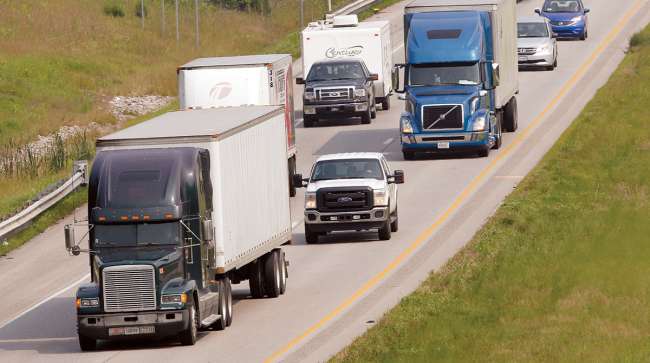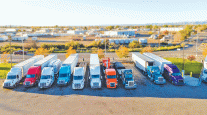Contributing Writer
Trucking Volume Linked to Future Spending Trends, Experts Say

[Ensure you have all the info you need in these unprecedented times. Subscribe now.]
Where and how consumers and businesses are spending money now, and how those habits might shift in the near future, will shape how the economy — and the trucking industry — will manage through the impact of the COVID-19 crisis, experts said.
“It will be interesting to see if the U.S. can snap back as we would like it to,” Ann Duignan, truck and equipment analyst for investment house J.P. Morgan, said during an April 2 conference call the company hosted with a panel of experts to discuss the nation’s economic outlook. “There will be tough times in the near term.”
Among the key challenges are the drop in stockpiling that defined consumers’ early response to the pandemic and a precipitous slide in demand for discretionary goods, said Jim Meil, principal for industry analysis for ACT Research.

Meil
“Business for bars and restaurants has completely dried up,” Meil said. “It goes to speak to the devastation that is occurring right now in the services sector.”
A large share of retail spending that is taking place has shifted online, resulting in businesses such as Amazon, Walmart and CVS hiring in large numbers, he noted.
“E-commerce is still going to drive a good amount of demand,” added Brian Ossenbeck, J.P. Morgan’s airfreight and surface transportation analyst.
As it relates to specific sectors, continued purchases of medical supplies, food and beverages will bolster the refrigerated market, Meil said, while Ossenbeck noted that weakening demand for goods hauled via flatbed will start hurting that segment.
More broadly, freight hauling also is starting to develop an imbalance.

Ossenbeck
“A lot of goods are going into one direction, and it’s a pretty heavy flow,” Ossenbeck said. “That’s difficult when you don’t have the backhaul.”
This, he noted, is a result of the drop-off in consumer discretionary spending.
That said, trucking is doing better weathering the downturn than most other segments of the economy. While the S&P 500 stock index dropped 23.7% from Feb 19 — the start of the market correction — through March 31, the Dow Jones Trucking stock index was down a comparatively better 13.5%.
Longer term, the industry’s outlook is clouded by uncertainly in global trade, which is heavily tied to freight demand, Ossenbeck said.
“There’s a lot of confusion based on who we’re talking to about activities and the ports. Depending on who you ask, there is stuff on the water, there’s stuff being canceled, there’s stuff approaching right now,” he said. “We think that this can be a hard time for China trying to define a landing spot for some of those goods.”
According to Meil, ACT is forecasting a U.S. economic rebound starting in the fourth quarter of this year into next year.




